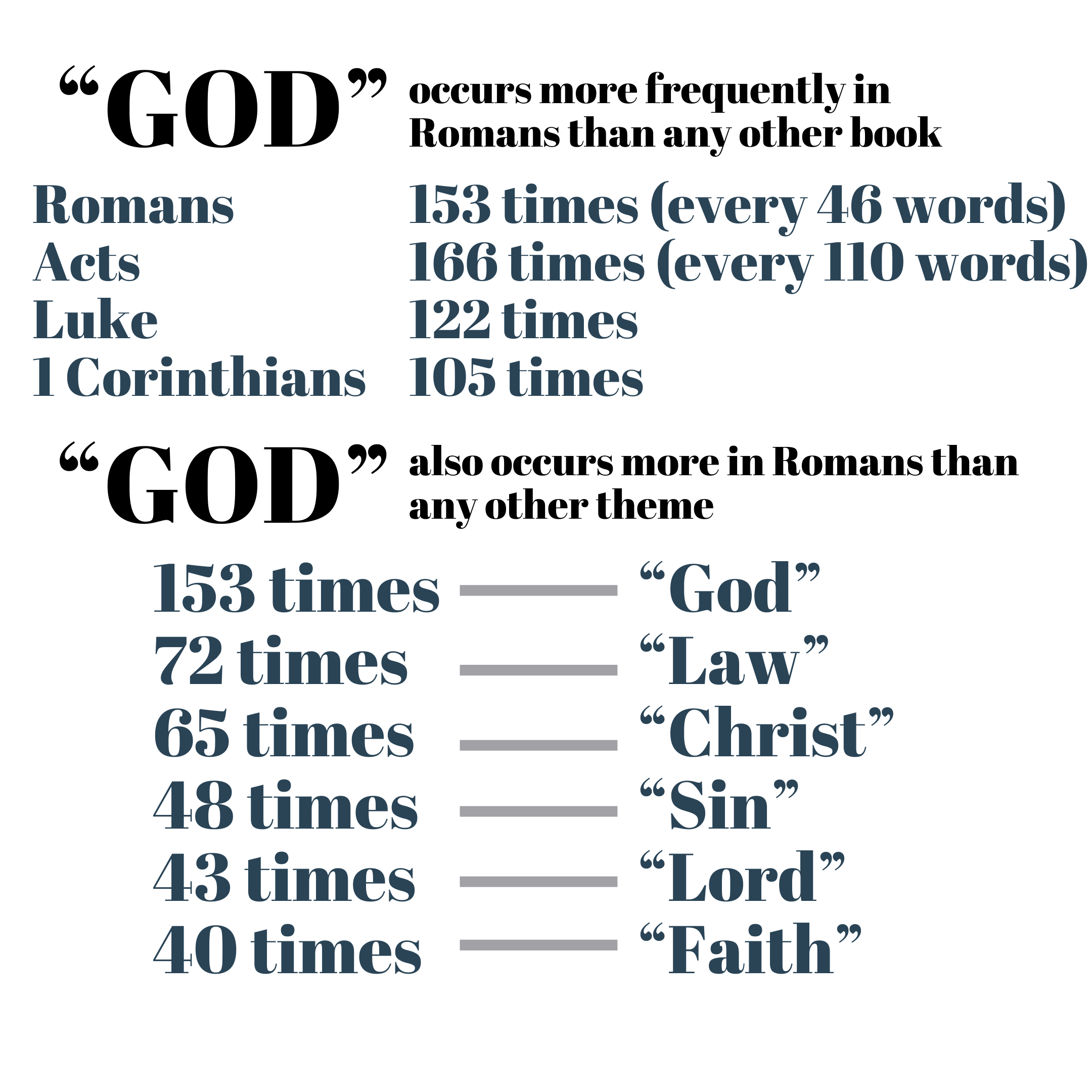24 Sep What is the unifying center of Romans?
At the risk of stating the obvious, the unifying center of the entire Bible is God. The first line of Scripture says, “In the beginning, God”. To understand anyone or anything, we must begin with God. The unifying center of history, theology, the Bible, and our lives is ultimately God. This same principle is true of Romans, as well as every other book of the Bible.
Bible commentator Leon Morris says, “One point that is often overlooked and should be stressed is that Romans is fundamentally a book about God. It is obvious to all that Romans is concerned with the gospel, with salvation, and so on. But many students seem not to have noticed Paul’s preoccupation with God. The thought of God dominates this epistle. The word ‘God’ occurs 153 times in Romans, an average of once every 46 words. This is more often than in any other New Testament writing (except the short 1 Peter and 1 John). Acts has the word 166 times, but since it is so much longer this works out to once in 110 words. The only other books with more than 100 occurrences are Luke with 122 and 1 Corinthians with 105. And not only does ‘God’ occur in Romans more frequently than in any other writing, it occurs more often than any other theme in that book. Apart from a few prepositions, pronouns, and the like, no word is used in Romans with anything like the frequency of ‘God’. Next is ‘law’ (72 times), then ‘Christ’ (65), ‘sin’ (48), ‘Lord’ (43), and ‘faith’ (40). Statistics must always be used with caution, but these figures draw attention to the important fact that in Romans the one great theme is God. Paul writes on a number of topics, but everything is related to God.”13
 To find the free Romans study guide for individuals and small groups, hear Pastor Mark’s entire sermon series on Romans, or find a free mountain of Bible teaching visit legacy.realfaith.com or download the Real Faith app.
To find the free Romans study guide for individuals and small groups, hear Pastor Mark’s entire sermon series on Romans, or find a free mountain of Bible teaching visit legacy.realfaith.com or download the Real Faith app.
- Leon Morris, The Epistle to the Romans, The Pillar New Testament Commentary (Grand Rapids, MI; Leicester, England: W.B. Eerdmans; Inter-Varsity Press, 1988), 20.


